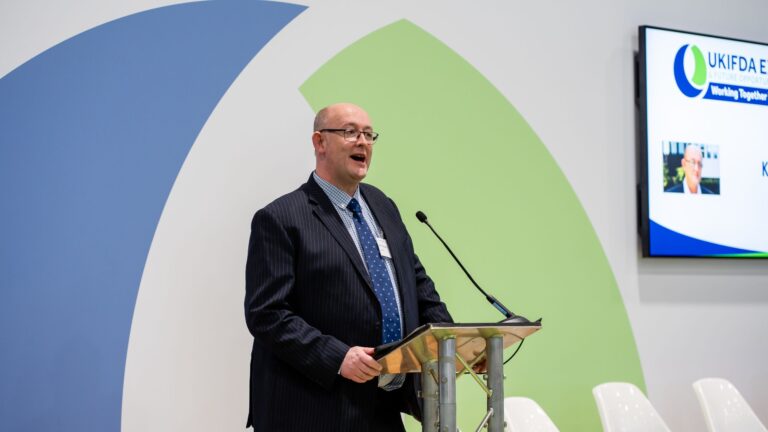
There is now one clear, unequivocal fact – the consensus on climate policy is fractured. While broad support for tackling climate change remains, we’re now witnessing a clear divide between net zero vs not zero, which some are calling net zero-ish.
Unfortunately, this leaves everyone in a position where they are forced to guess and gamble on what may be the most consequential set of energy decisions in a generation. Which net zero technologies will prevail? Is it safe to invest? Do we back option X or Y, knowing full well the policy could be reversed within three years?
This isn’t just political posturing – it’s a fundamental shift. For the first time, investors are being actively discouraged in areas where there once was consensus. This is unprecedented.
Across the UK, the picture is patchy:
- In Northern Ireland, the climate action plan advocates switching from oil to gas – yes, gas – with no mention of consumer cost.
- In Scotland, Parliament has voted through a carbon budget without discussing or publishing the plan to deliver it.
- In Westminster, we wait for the Warm Homes Plan. With recent ministerial reshuffles and upcoming elections in Scotland and Wales, I expect this will be delayed and possibly diluted.
A few months ago, I cautioned against chasing a technically perfect solution that was simply unaffordable for consumers. Today, my concern has shifted. We now risk moving towards a plan that values speed over substance.
It’s no longer about doing it right – it’s about getting it done. And that’s a dangerous trade-off. The recent news that over 90% of External Wall Insulation (EWI) installations under certain government schemes have major issues is not only shocking – it significantly highlights these concerns.
Time to redouble our efforts
Whatever the Warm Homes Plan reveals, it won’t be the end of the story for rural customers. They deserve real, affordable choices – not a one-size-fits-all mandate. UKIFDA and its partners continue to advocate for one such option – the use of a renewable fuel blend.
Our proposal is proven, practical and politically supported. It has strong backing from the Governments of Ireland, Scotland and Northern Ireland, and is gaining momentum among rural MPs in Westminster. We’re not here to chase perfection at the expense of progress – we’re here to deliver what’s good and what’s right.
And rural voices are being heard. Over 1,000 letters have been sent to MPs at Westminster in the past month alone, backing our plans.
Recent comments from readers of this publication say it best:
“There’s no way we could afford to replace our oil heating system with an eco-friendly option, and if the Government subsidies are anything like they were for the electric car scheme, it would still be unaffordable for the average person living in the UK.”
“The energy transition is a difficult challenge for the Government. I don’t think enough support is being offered to help people so they can make a positive change.”
“We’re in favour of net zero – but not at any price.”
This is why we’re doubling down on our efforts, as I firmly believe now is the time to show leadership.
Winter is here – time for calm heads
By the time this edition lands, the clocks will have changed, and winter will be upon us. With ongoing disruption in the refining sector, the starting point this year is far from ideal. UKIFDA continues to work closely with government to anticipate and mitigate supply challenges. I’m grateful to distributors for the real-time insights they’re providing – these are vital.
Earlier this year, UKIFDA shared guidance with its members on the Digital Markets, Competition and Consumers Act 2024 (DMCC Act), a landmark piece of legislation that sets new expectations for how businesses engage with customers. This will be very important during the winter months, if we experience supply issues.
At its core, the legislation encourages us to communicate with clarity, fairness and responsibility. It’s about helping customers make informed decisions, especially during busy or high-pressure periods.
The Key Principles:
- Ensure all information is clear, accurate and complete
- Avoid overstating risks or creating undue pressure to buy
- Consider how messaging may affect vulnerable customers
- Be cautious with claims about stock levels or availability
- Use urgency-based messaging responsibly
These guidelines apply across all channels – written, verbal and visual – and align closely with UKIFDA’s Code of Conduct, which states: “Members will provide consumers with accurate marketing, information and advice on the products and services they provide for domestic customers.”
We know that many of our members are already working hard to meet these standards. However, if any member requires further guidance, please do not hesitate to contact UKIFDA.
With the Warm Homes Plan, shifting government priorities and new legislation all in play, this winter brings more uncertainty than most. It also brings an opportunity to lead. UKIFDA will continue to support members, advocate for rural customers and offer clear guidance as the landscape evolves.
Image courtesy of UKIFDA
